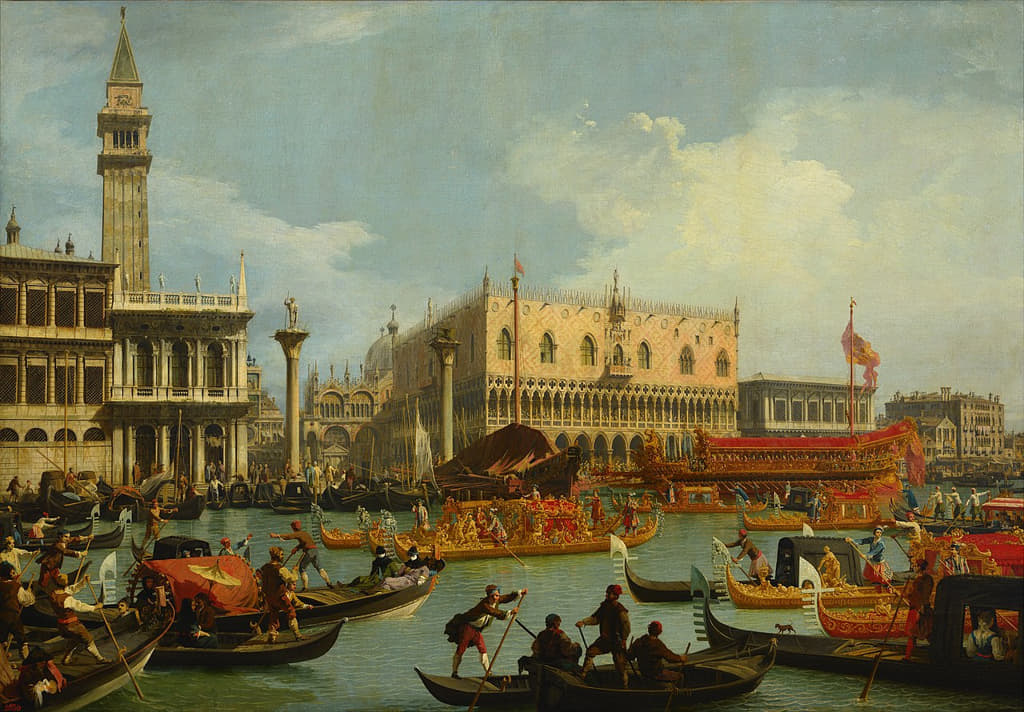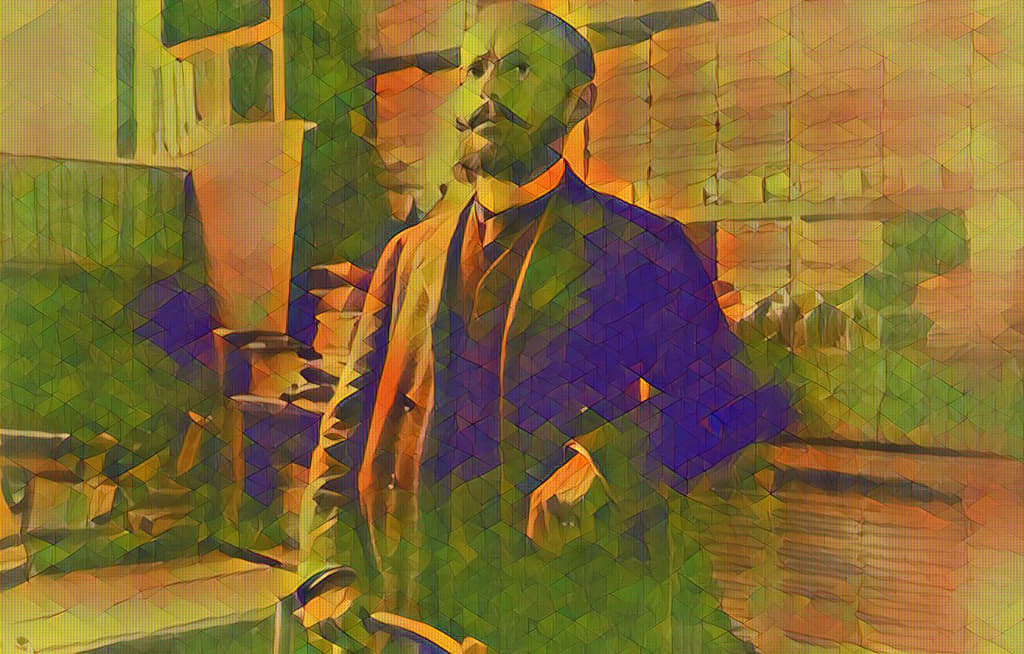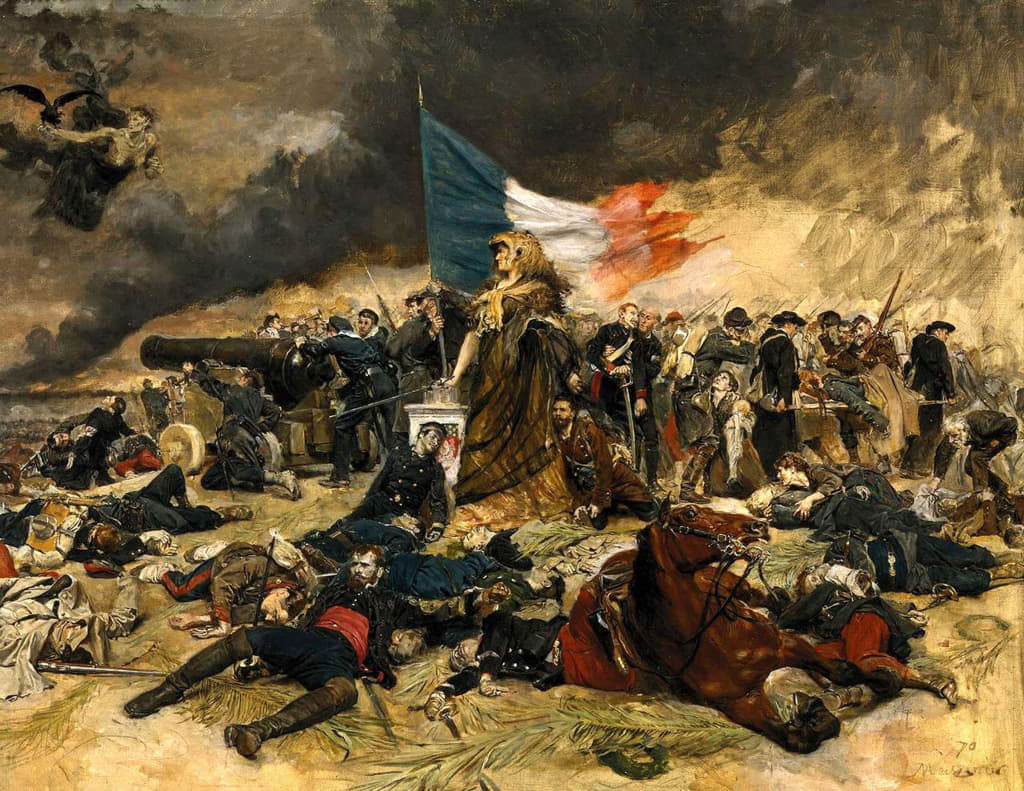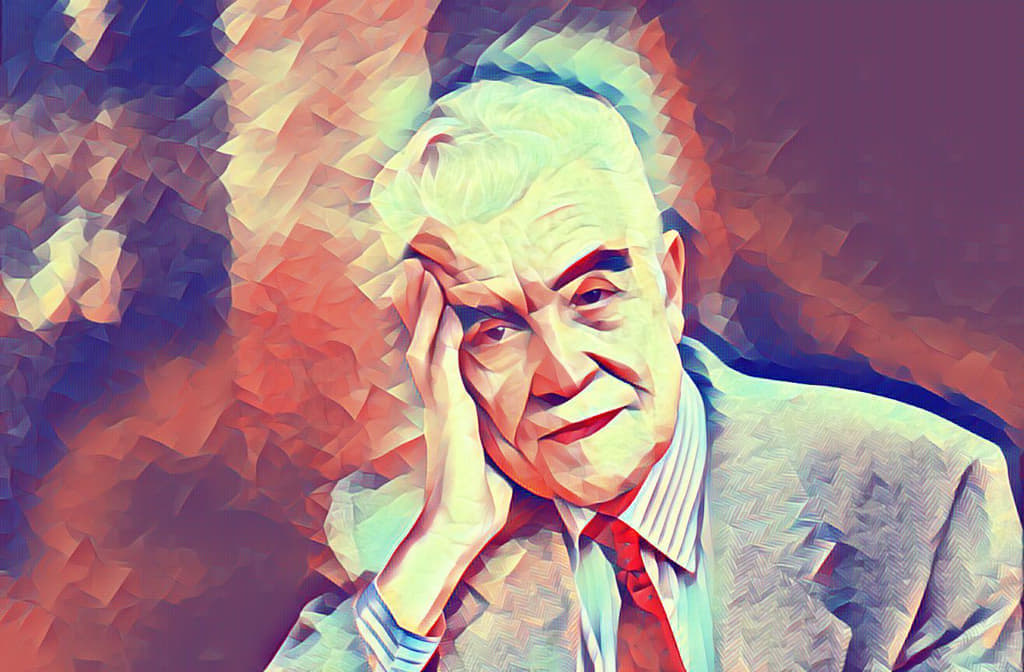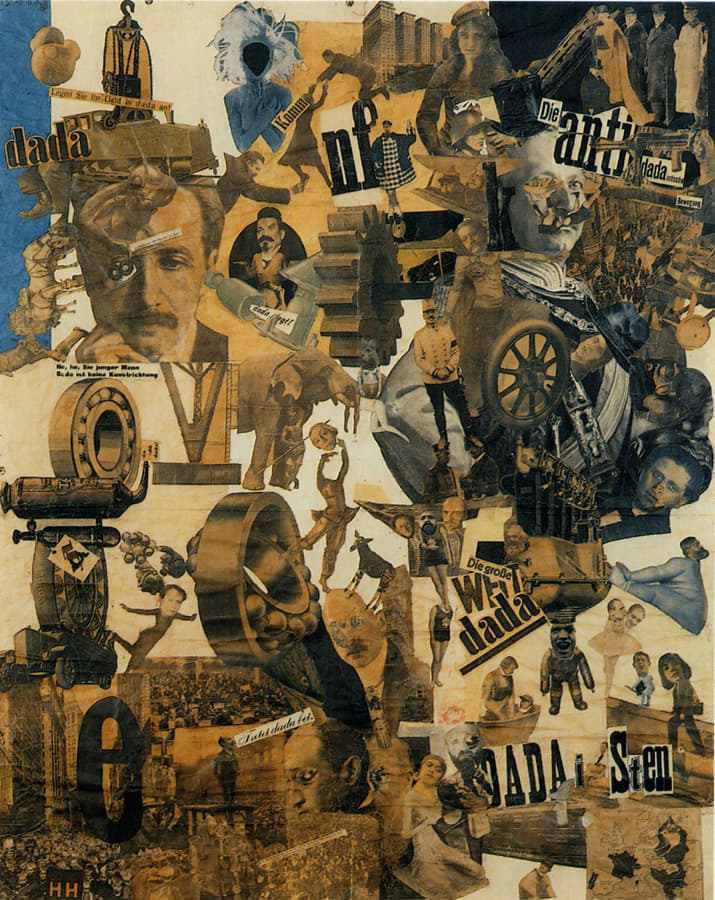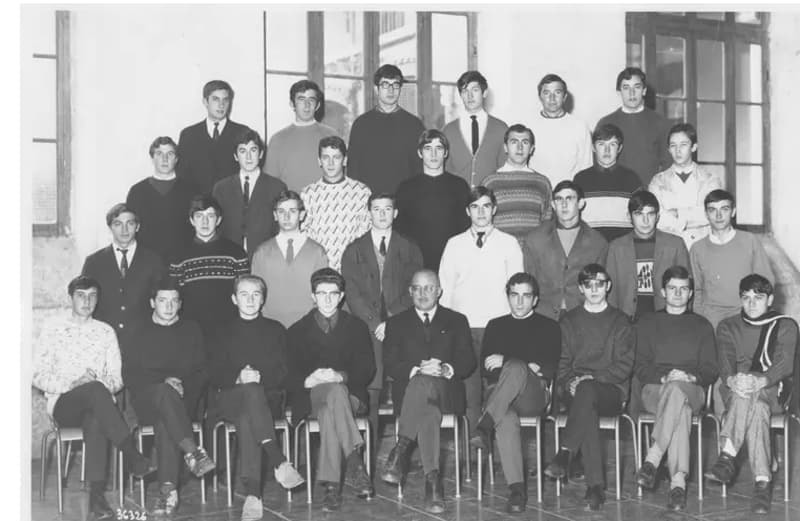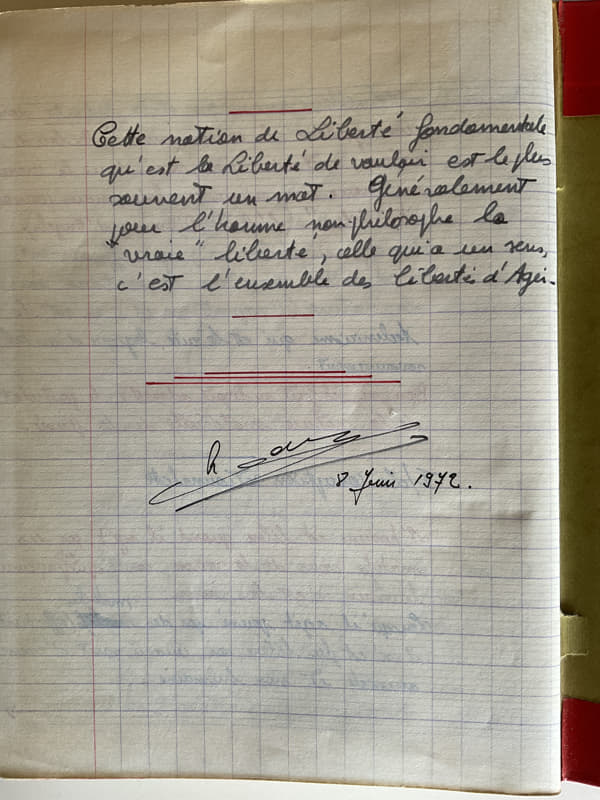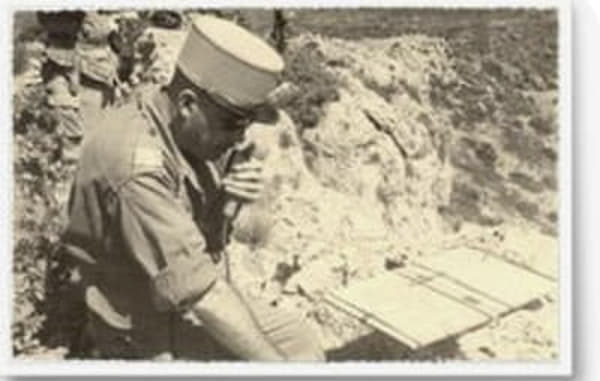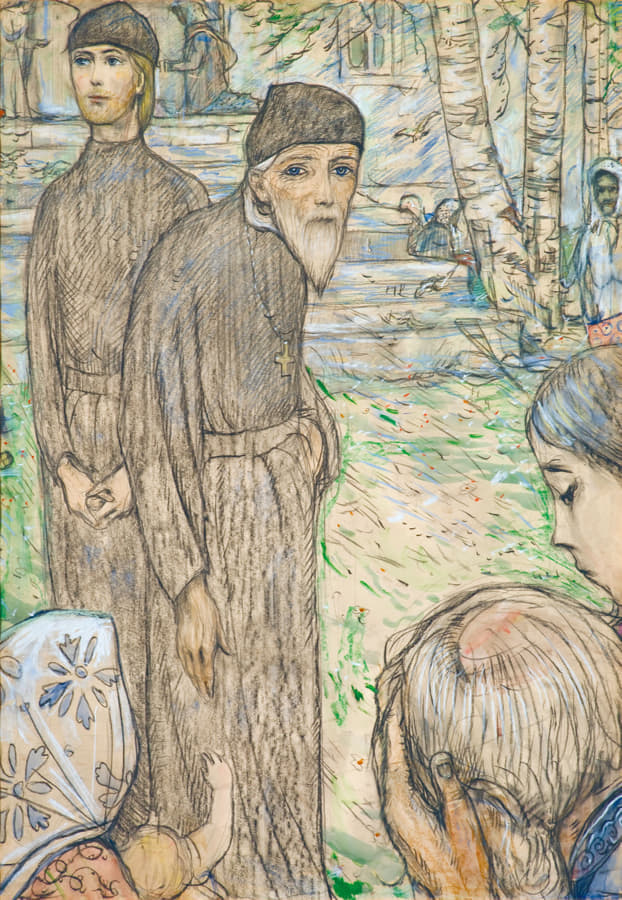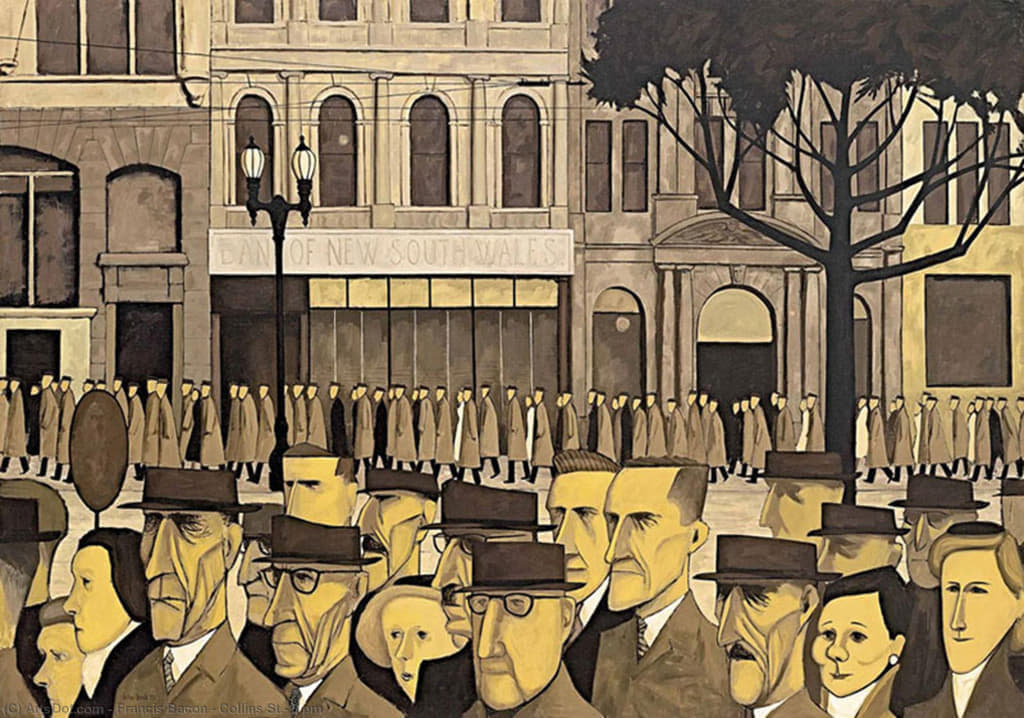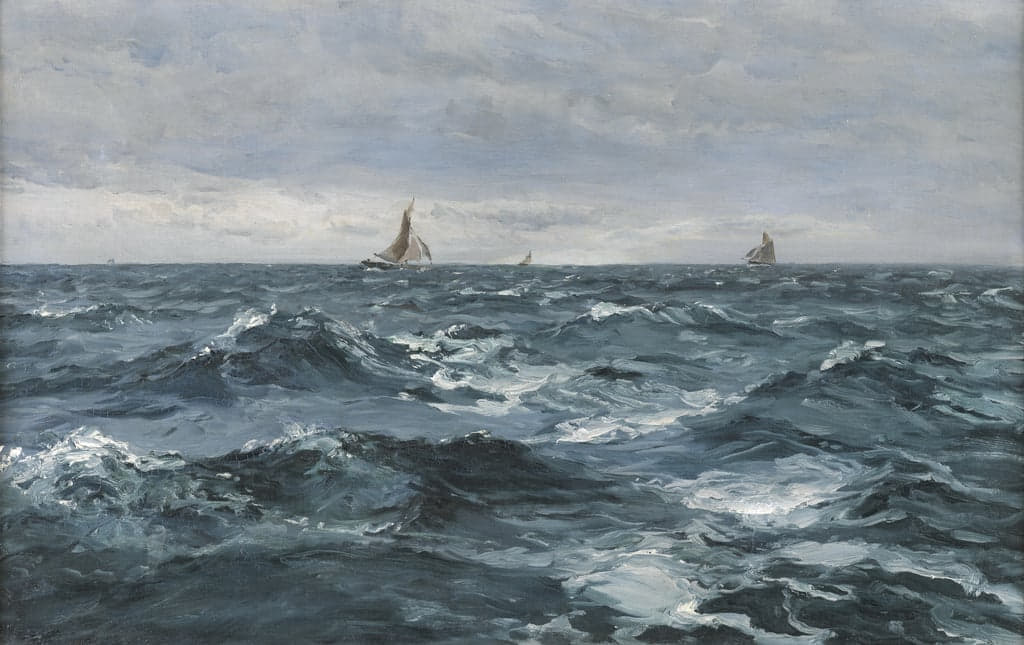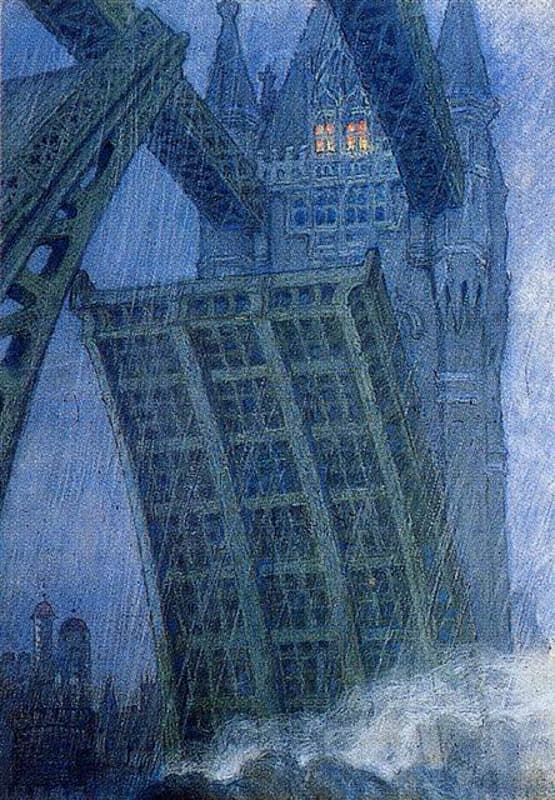Introduction
Hopes for a peaceful development of mankind in the 21st century have not come true, and the predictions of polemologists led by Gaston Bouthoul have largely become the reality of today. In this regard, theories that have not recently had a wide reception, as they chose war as the object of research, are now coming to the fore. Among them we should mention the area of the “philosophy of war,” which has found numerous proponents among French political philosophers.
Continuing the French tradition of viewing war through the prism of philosophy, a study by the renowned French philosopher Henri-Paul Hude, A Philosophy of War, was published in France, in November 2022, and in English in 2023. In it, Hude poses the problem of the emergence and the possibility of eliminating war from the life of mankind in our time. On April 11, 2023, at the Department of Philosophy of Politics and Law, Faculty of Philosophy, Lomonosov Moscow State University, a discussion of this book was held online with the participation of the author of the book. The event included a fruitful dialogue on the causal links between war and politics. The French professor presented his point of view on the importance of penetrating into the essence of war through its philosophical interpretation. Obviously, his views are based on a solid foundation created by French political philosophers and thinkers over several centuries, which I would like to describe in this article.
Philosophical Understanding of War: The Emergence of the Term, “Philosophy of War”
Since ancient times, philosophers have tried to understand the meaning of war and the reasons for its emergence. The philosophical approach fundamentally differed from other forms of understanding this phenomenon: mythological, religious, historical. Rational comprehension of this phenomenon allowed us to identify its essential features and thereby understand the cause-and-effect relationship between the factors that give rise to it and the coming consequences. We find such attempts in European antiquity in Heraclitus, Plato, Aristotle, Cicero and others. War as an essential part of the life of society was reflected in the works of military leaders, thinkers, philosophers, but for a long time there was no separation of the field of knowledge about war into a separate branch.
One of the first to speak of a “philosophy of war” was Marquis Georges de Chambray, a participant in the Russian campaign of 1812. In the preface to his work called Philosophie de la guerre (Philosophy of War), (first published in 1827, then continuously reprinted), he explains in what sense he treats the concept of “philosophy,” which he connects with the concept of “war” to penetrate into the essence of this phenomenon:
As the word “Philosophy” has several meanings, I feel I must make known the one I have given it in the title of this work.
There are four stages in the exercise of human intelligence: 1. Craft; 2. Art; 3. Science; 4. Philosophy. Craft is a routine or skill acquired through practice, without knowledge of principles and rules; art is subject to rules or principles; science is a system of knowledge about a useful object; philosophy is the background, the positive, the essence or even the generalities of a science.
I have used the word Philosophy in this sense: (a) Linné, (b) Voltaire, (c) Fourcroy, (d) Geoffroy Saint-Hilaire and many other authors have used it in the same sense (Philosophie de la guerre, pp. v-vi).
It should be noted that the Marquis de Chambray’s book was published several years earlier than Carl von Clausewitz’s work, On War, in which the Prussian military thinker did not use this term. Of course, this does not indicate that his work had no philosophical significance. Clausewitz is rightly written about as a representative of the philosophy of war, but the priority in the creation of the term does not belong to him.
Formation of the Field of the “Philosophy of War”
It is noteworthy that at the initial stage of the emergence of the philosophy of war, a significant contribution to the formation of this field was made by professional military men (von Clausewitz, de Chambray). The continuator of this tradition was the French author, Captain R. Henry, who wrote another book on the philosophy of war. It is not by chance that his work is referred to by the Russian and Soviet military commander Andrei E. Snesarev, who created a training course on the philosophy of war for officers-in-training at the Military Academy of the Red Army, of which he was the head from 1919 to 1921.
On the eve of the 19th century, pacifist sentiments prevailed in European philosophical and socio-political thought. In France, as in other European countries, there were illusions among intellectuals that war would be replaced by a new system of relations between states, when wars would become unnecessary because an adequate substitute would be found. In this case, war becomes pointless, as it is replaced by other ways of conflict resolution: diplomatic, economic, expansion of cultural contacts, etc. Among those who did not share optimism about the peaceful development of mankind was the French philosopher and sociologist Pierre-Joseph Proudhon, who doubted that war could be done away with. In his two-volume study, War and Peace (La guerre et la paix), he comes to the conclusion that war is inseparable from the life of society and that it is a necessary condition for its existence:
In my own view, it is plain that war has deep roots, scarcely discernible, in the religious, juridical, aesthetic and moral sentiments of peoples. It might even be argued that it has its abstract formula in dialectics. War is our history, our life, our very soul; it is legislation, politics, State, homeland, social hierarchy, the rights of people, poetry, theology; it is, once again, everything. We hear talk of doing away with war, as if it were some sort of toll or tariff. And there is no appreciation that if we discount war and its
associated ideas, nothing, absolutely nothing remains of humanity’s past and not a single atom upon which to build its future. Oh, I may well say to these clumsy peace-mongers, as I myself was once told in respect of property: How do you envision society, with war abolished? What ideas, what beliefs are you offering? What literature, what poetry, what art? What would you make of man, that intelligent, religious, justice-dispensing, free, individual and, for all of those very reasons, a warring creature? What would you make of the nation, that independent, outgoing, autonomous collective? What becomes of the human race in its eternal repose?
Proudhon was not satisfied with the superficial reasons by which wars are usually explained; he wanted to penetrate into the essence of the phenomenon. Another French author, François-Odysse Barot, reflecting on the philosophical problems of history, in particular on the paradoxes of war, noted:
Above all these numerous species of animals is man, whose destructive hand does not spare anything living. He kills to feed.He kills to clothe.He kills to dress up.He kills to attack.He kills to defend.He kills to educate.He kills to have fun.He kills to kill. An arrogant and formidable king, he needs everything, and nothing resists him. However, what creature would destroy the one who destroys them all?He himself?. It is upon man that the killing of man is entrusted.
In doing so, he points to the cause of wars, which lies in man himself. The illusions inspired by optimistic authors were not justified. The First World War, which the French called the Great War (La grande guerre), was a severe test for the participating countries, showing the depth of contradictions that became the real cause of the cataclysm, and gave food for more realistic assessments of this phenomenon.
Teilhard de Chardin, who participated in this war as a medic, in his free time from duty kept notes, which were later included in a collection under the general title, Writings in Times of War. In them, musings on various topics are interspersed with thoughts about the war. Life on the front line gave, strangely enough, rich food for philosophical reflections on war and peace. And it is quite natural, as it is difficult to separate one from the other. It is noteworthy that the observations of an eyewitness, a participant in the events and at the same time a thinker and philosopher give this collection a special value. In one of the essays in this collection, entitled, “Nostalgia of the Front,” he writes:
And so, when the desired peace of the nations (and of me first of all) comes, something like a light will suddenly be extinguished on earth. War had torn through the crust of banalities and conventions. A “window” had opened onto the secret mechanisms and deep layers of human becoming. A region had opened up where men could breathe air charged with heaven. With peace, all things will be covered by the veil of monotony and ancient pettiness.
He contrasts this with war, which reveals to the participants a superhuman reality:
Happy, perhaps, those whom death will have taken in the very act and atmosphere of war, when they are driven, animated by a responsibility, a conscience, a freedom greater than their own, when they are exalted to the very edge of the world—very close to God!
Thus, war becomes for him an encounter with the Absolute.
Henri Bergson, a representative of intuitionism and philosophy of life, published a text in November 1914 in the Bulletin des armées de la République, in support of France and its soldiers. In the first line, he declares that the end of battle is beyond doubt: Germany will fall. This is not really a foresight; it seems like a prophecy. Jean-Philippe Cazier evaluates this short address to the French soldier:
Thus, Bergson’s text carries out a series of shifts from the very beginning: history and politics overlap there with metaphysics, chance is shifted to a higher necessity, the singular is placed in the category of the political and the moral, as well as the vital, which embraces the individual and the subject, defined as the means of this order. The soldier becomes a kind of antique hero, and France becomes both a mythical and metaphysical figure.
The theme of war, although not explicitly expressed, is also constantly present in Bergson’s work, The Two Sources of Morality and Religion, published in 1932. We find elements of nihilism and mysticism in the conceptualization of war Georges Bataille’s works Inner Experience, The Limit of the Useful. The theme of war in Marcel Proust acquires a real philosophical resonance in his work In Search of Time Lost. Philippe Mengue argues that Proust has two types of understanding of war: orthodox, integrated into the state apparatus, and the second, original, anticipating the views of Gilles Deleuze, showing the existence of “war machines,” independent and external to the state. The war also influenced the work of Jean-Paul Sartre, who participated in the Second World War. The period at the beginning of German hostilities against France was called the Phoney War (in French, “Funny” or “Strange War”). During this time, the French philosopher served as a private at a surveying station in the Vosges. There he had the opportunity to devote his leisure time to writing diaries in which he described the events around him. These entries were later published under the title, War Diaries: Notebooks from a Phoney War, 1939-40. The war was a turning point in Sartre’s destiny: a break with pacifism and a transition to active citizenship.The time spent in captivity and participation in the Resistance also played an important role in his philosophical formation. His diaries have a syncretic character. They contain observations, reasoning and inferences of a socio-philosophical nature. In War Diaries, Sartre applied the experience of his philosophical novel, Nausea (1938), where he had already used the genre of diary entries kept by the protagonist Antoine Roquentin. The influence of previous philosophical works is also evident. His observations on the “world of war” are not yet philosophy, but they are no longer mere eyewitness notes:
Man—I want to say, the enlisted herd? The messiness of war and the ambiguity of the warrior’s nature stem from the fact that man is treated simultaneously as a machine and as a psychic being sensitive to ceremony.
1) Like a machine. Like the worker, the soldier provides work. But it is unproductive work. Its ultimate purpose is to destroy, and when it is not actually destroying, it is nothing more than a simulacrum—firing blanks, big maneuvers, endless drills. So, you cannot rob him of his labor, because his labor doesnot provide value, in the Marxist sense. It is a naked effort. A soldier is not exploited, but even more than the worker, we maintain him like a machine.
2) Like a ceremonial being. Yesterday’s gathering emphasized “the high significance of saluting.” We see the conservative thinking process: the salute as ceremony. Then there is the search for a higher meaning. This is the thinking of Maistre and Bonald. We are bound by ceremonies and dances; we are captives of military politeness. The men of Verdun were forced to exercise during their rest periods, to “keep them well in hand.” Here, Alain’s analysis is perfectly accurate. It is obvious, however, that he is far from complete. The ambiguity is that command, in its representation of the enlisted herd, cascades endlessly from the material to the ceremonial and from the ceremonial to the material. And, of course, following the command in his representation of himself, the man himself jumps?
In his Dairies, Sartre’s reasoning about freedom, democracy, fascism, civilization, values is close to political philosophy:
One should not confuse the origins of this war, which may be clear to the historian, with the motivations that drive us to fight, which, as I indicated above, are unclear. Indeed, one should try to think of this war as an event, as a meaningful reality and as a value. It is precisely the value of this single war that is elusive.
The widespread assertion that the phenomenon of war is a common theme for twentieth-century intellectuals is well-founded. Many French writers, politicians, and thinkers wrote about this phenomenon. Among the famous names is Raymond Aron, Sartre’s friend at the École Normale Supérieure, who later became his opponent and ideological adversary. Aron’s versatile oeuvre did not ignore the fundamental theme of modernity—war. As a prominent theorist of international relations, Aron paid great attention to the phenomenon of war.
Among Aron’s significant works in this regard are, The Century of Total War (Les guerres en chaîne), Peace and War (Paix et guerre entre les nations), and Clausewitz: Philosopher of War (Penser la guerre, Clausewitz). In The Century of Total War, Aron emphasizes the idea of the ratio of quantity and quality in the process of creating a “critical mass.” Wars can reach it, thus creating the conditions for the emergence of a “chain reaction.” Thus, the First World War developed into the Second, and has the possibility of moving into the Third. Another of his works, Peace and War, published in 1962, is devoted to the justification of the theory of international relations. In an extensive article on the publication of this book, the French historian and political scientist Jean-Baptiste Duroselle elaborated on the contribution made by Aron to the development of the theory of international relations:
This abstract theory, which consists in conceptualization, presupposes, naturally, a second part: the search for determinants. Theory suggests what elements are to be analyzed; sociology influences these elements. The sociologist’s task “lies between that of the theorist and that of the historian.”The historian interprets the totality of the particular, the singular. The sociologist looks for judgments of “some universality.” So, there are two categories of possible determinants. One is physical or material: space, population, resources; the other is of a social nature: the nation and its regime; “civilization,” a phenomenon of the future whose relatively stable features (regularities) and transformations must be comprehended; and, finally, humanity, that is, a regularity related to the essence of human nature. The great problem relating to the last concept is to know whether man is aggressive by nature, whether there is biological aggressiveness or whether war is a consequence of the social condition. “The difficulty of peace refers rather to the human essence than to the animal beginning of man.”
In our opinion, this part of the task belongs not only, and not so much, to the competence of a historian or sociologist, but to the competence of a philosopher. Therefore, it is quite appropriate to talk about Aron’s contribution to the philosophy of war, but not only. At the same time, in his work he tries to reflect on the future of humanity. To an even greater extent, Aron reveals himself as a proponent of the philosophy of war in one of his later works, Clausewitz: Philosopher of War. André Glucksmann, who was influenced by his teacher during his tenure as an assistant to Aron, published his first book, Le discours de la guerre (A Discourse of War), in December 1967, which he characterized twenty years later as a mixture of philosophy, military strategy, nuclear deterrence and game theory. Nevertheless, it determined his interest in military issues, conflicts, the problem of violence, and terrorism.
At this time in the study of the phenomenon of war was developed polemology—”a new science of war”—in the words of creator Gaston Bouthoul. This field aroused interest in scientific and political circles in France. The French Institute of Polemology in Paris (Institut français de polémologie) has been under the auspices of the Ministry of Foreign Affairs, the Ministry of Defense, the Ministry of National Education and the Ministry of State for Scientific Research. Although Bouthoul believed that polemology was the sociology of war, this field was characterized by interdisciplinarity in the study of the phenomenon “war-peace.” Polemologists widely used heuristic possibilities of related disciplines. The fundamental works of the founder of polemology often contain reasoning that is philosophical in nature. This is noted by Alexis Philonenko in his Essais sur la philosophie de la guerre (Essay on the Philosophy of War), identifying the philosophy of war and polemology. He highlights the philosophical orientation of the reflections in the works of Bouthoul, who felt the urgent need to move away from the sociologism of his theory andtoward generalizations of a philosophical nature. A similar idea is formulated by the Romanian author Vasile Secăreş: “The ideas of the father of polemology, which are controversial, no doubt returning unexpectedly for our days to Durkheim’s sociologism, nevertheless have the merit of emphasizing the need for a holistic view of man and his past.”
Philosophical Paradigm for the Study of War
Since the emergence of the “philosophy of war,” its representatives have sought to consider war within the philosophical paradigm. Thus, the above-mentioned R. Henry in his essay tried to depart from the established standards of considering war from the point of view of military science. He wanted to give his study a philosophical character. His book in structure and style resembles the work of Carl von Clausewitz, On War. Henry combined philosophical and political reasoning about the phenomenon of war with military-strategic inferences. In a number of instances, he managed to find a connection between war and other areas of human activity. He points out that war “…is linked to politics and social science by its causes and results; it combines all the knowledge accumulated by mathematics, physics, and the natural sciences to increase man’s strength a hundredfold and to raise the intensity of his collective action.Finally, it gives rise to a real philosophy through the consideration of simple principles and natural laws with which the thinker can relate all the social, moral, and technical questions put at stake by these conflicts, in which the mind and vitality of the human race are periodically tempered.”
The Dutch ethnologist and sociologist,Sebald Rudolf Steinmetz, writing on the eve of the First World War, devoted his work (Die Philosophie des Krieges) to a philosophical consideration of war as a phenomenon inherent in the human race.In it, he analyzed the causes, consequences and trends of this phenomenon. Relying on a solid base of sources, he paid tribute to the contribution of researchers who devoted their research to the study of war. Among them he mentioned the names of French colleagues: Gustave Lagneau, Charles Létourneau, Ernest Lavisse, Alfred Nicolas Rambaud, Jean Lagorgette, Maurice Loir. Later, Emile Ollivier devoted his work to this problem. Following Loir’s example, he analyzed the Franco-Prussian War of 1870-1871 in his book, Philosophie d’une guerre: 1870 (The Philosophy of One War: 1870). In the context of sociology’s offensive against philosophy, the position of the philosophy of war was weakened. However, the outbreak of the First World War brought philosophy of war to the fore. Paul-Louis Landsberg published an article entitled, “Réflexions pour une philosophie de la guerre et de la paix” (“Reflections on the Philosophy of War and Peace”) in the October 1939 issue of Esprit, a journal aimed at French-speaking intellectuals. He writes at the very beginning of the article: “…philosophical thought must remain clear and pose problems in its own way.”
A great contribution to the formation of the philosophy of war was made by Charles de Gaulle. His political and philosophical thought covered the most diverse aspects of the development of the French state and nation. Military and national security issues were not the least important. His concept of “defense in all directions” was influenced by the French philosophers Jean Bodin and Montesquieu, who attached great importance to the geographical and psychological factors in the political development of nations. The concepts of “nation” and “national interest” became the axis of the policy pursued by de Gaulle during his presidency. French military policy became a derivative of these determinants. The problem of national interest remains very important to this day, although it is interpreted differently by some theorists (Raymond Aron, Jean-Baptiste Duroselle, Régis Debray, Thierry de Montbrial). The realistic approach of a number of French political thinkers, philosophers and sociologists to the interpretation of the concept of “universal values,” which under certain circumstances can cause conflict situations at different levels, deserves attention. The position of the famous French polemologist Julien Freund, who warned about the danger of fighting for mythical “universal values,” which he perceived as an acceptance of political dependence, is interesting in this regard.
Philosophy of War and Modernity
Years and centuries pass, but the relevance of the philosophy of war does not diminish. The French philosophical community has reacted vividly to the military conflicts and wars that periodically arise in various corners of our planet. Publications devoted to this problem are multiplying. Alexis Philonenko’s work, Essais sur la philosophie de la guerre is a large-scale work on the coverage of problems and personalities. The author refers to the concepts of such thinkers and philosophers as Machiavelli, Kant, Fichte, Hegel, Saint-Just, Clausewitz, Proudhon, Tolstoy, and de Gaulle. The comparison of Tolstoy’s and Clausewitz’s views on war is certainly unexpected.
Philonenko’s reflections on the correlation between language and war, logic and strategy, respectively, are interesting. The philosophical tradition in discussing the phenomenon of war continues in the socio-political and professional philosophical thought of France, and the 21st century has convincingly proved it. The debate involves members of the public and professional philosophers. Lecture-debates such as those organized by the Philosophical Society of Nantes in 2003-2004 around the theme of “Philosophy in the Face of War” demonstrated the interest in the philosophical treatment of the phenomenon of war in relation to modernity. During the debate, presentations were made by well-known French philosophers J. Gobert, Thierry Ménissier, B. Benoit, and P. Hassner. In addition to the already mentioned experts on this problem, we should name P. Gallois, J. Guitton, D. David, Régis Debray, A. Joxe, Roger Caillois, E. Murez, P. Lelouch, C. Le Borgne, D. Herrmann and others. The philosophy of war has attracted the attention of many French philosophers. In particular, the work of Clausewitz was the subject of research both by Raymond Aron and René Girard.
The views of the French philosopher and political scientist Jean-Baptiste Jeangène Vilmer on the problems of modern wars are of interest. In his book, La guerre au nom de l’humanité (War in the Name of Humanity), he considers a whole set of problems affecting the basics of understanding the phenomenon of war. His multifaceted education (philosophy, law, political science) allows him to consider war in a political-philosophical way with the knowledge of legal issues. Former French Foreign Minister Hubert Védrine, in the “Introduction” to this book, notes his commitment to realism, a sense of proportion, balance, without any theoretical excesses or dogmatic simplifications. Early 2019 saw the publication of a book by the French engineer, philosopher Jean-Pierre Dupuy, La guerre qui ne peut pas avoir lieu: Essai de métaphysique nucléaire (The War That Cannot Happen: An Essay in Nuclear Metaphysics). It would seem to be a return to the old theme of the inadmissibility of nuclear war. One recalls the statements of progressive scientists who put forward pessimistic predictions of the fate of humanity after nuclear war, about the possibility of a “nuclear winter.” Dupuy is concerned that the world has come even closer to the brink of nuclear war than during the Cold War, but most people ignore the danger. He discusses the possibility of war breaking out uncontrollably regardless of the will of politicians, because of the triggering by “apocalyptic machines.” He raises in a new way the problem of the effectiveness and morality of nuclear weapons.
Conclusion
Given the presence of competing approaches to the cognition of war, there have been and are different points of view on the way to penetrate to the essence of this phenomenon. At the present stage, we can say that none of the paradigms has clearly proved its superiority in the realization of the epistemological goals set by the supporters of one or another direction. Apparently, mutual complementarity remains the fundamental principle of truth comprehension. In this respect, there are proposals to create a “new science of war.” Here, however, conceptual questions arise. One of them is the question of what a “new science” is. For example, the Russian military scientist Nikolai N. Golovin meant by this “the sociology of war,” as Gaston Bouthoul later did (though with significant inclusions of philosophy). Andrei E. Snesarev called the “philosophy of war” a universal tool for understanding the phenomenon of war. Gustave Le Bon considered war from the standpoint of psychology. The need in our time to create a “new science of war” requires combining different approaches, which can give a positive effect of understanding this phenomenon and the influence upon it.
This is all the more relevant now, since terrorism is gaining such a scale that a number of authors consider it as a kind of war. In the complex of methodological approaches to the study of wars and military conflicts, philosophy occupies an important place, as it perceives and conceptualizes this phenomenon in the most general way, which allows us to get close to its essence and find methods and means of counteraction. It is philosophy that can answer the following questions: what is war? What are the causes of wars? What is the relationship between human nature and war? Are there just wars, etc.?
The Department of the Philosophy of Politics and Law, in the Faculty of Philosophy, at the Lomonosov Moscow State University does a lot to study the phenomenon of war in keeping with the times: special courses devoted to this problem are offered, such as “The Philosophy of War” (since 2009), “Fundamentals of Polemology” (since 2016); numerous articles devoted to polemological problems have been published; members of the department have participated in various conferences on the problems of wars and military conflicts. One of the features of the departmental approach to the study of the phenomenon of war is the focus on the comparison of different points of view on this problem. As a result, we have formed the opinion that the concepts of French philosophers writing about war, in the paradigm of the “philosophy of war,” are characterized by originality and deserve careful study in the context of the dominance of Anglo-American theories.
Complete references are found in the Russian original.
Alexei V. Soloviev is Associate Professor in the Department of the Philosophy of Politics and Law, Faculty of Philosophy, Lomonosov, Moscow.
Featured: Le siège de Paris (The Siege of Paris), by Jean Louis Ernest Meissonier; painted in 1870.

